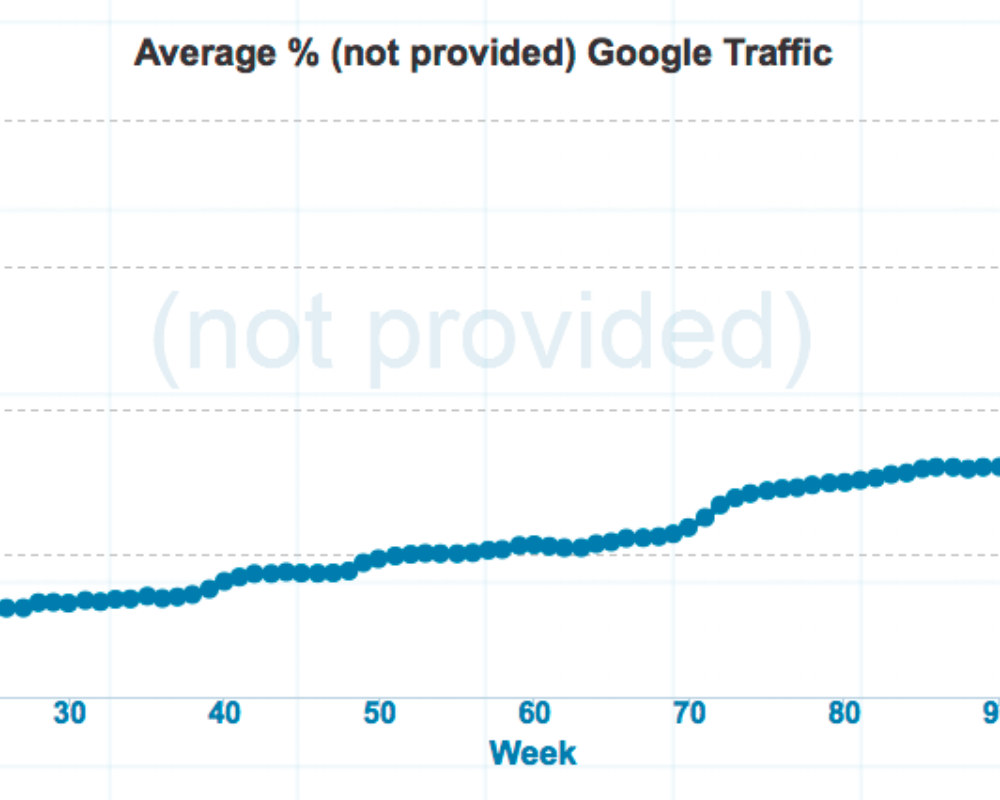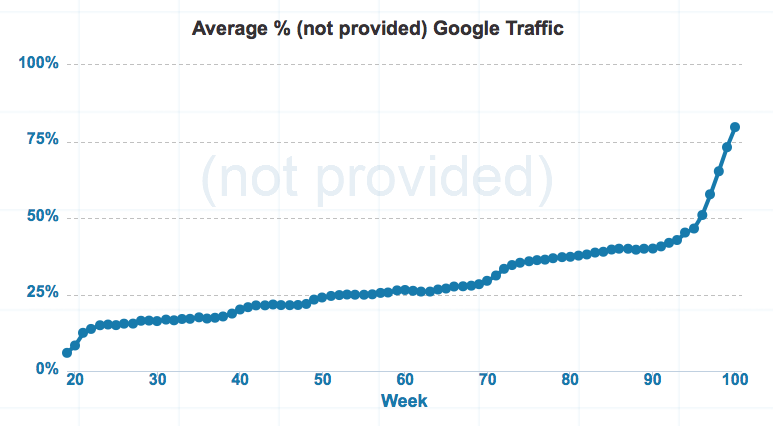
Google “secures” data, explanation (not provided)
In response to growing public concerns of Internet security, Google moved to “secure” search data for its users by removing keyword data from search referral strings. This change comes after The Guardian and The Washington Post published controversial details on the NSA’s PRISM program. Refuting allegations the company allowed the NSA access to its secure severs, Google issued the following statement:
Google cares deeply about the security of our users’ data.
We disclose user data to government in accordance with the law, and we review all such requests carefully.
From time to time, people allege that we have created a government ‘back door’ into our systems, but Google does not have a ‘back door’ for the government to access private user data.
As certain as I am the old adage “you can’t make everyone happy” is correct, Google is finding themselves in a tough spot to make anyone happy, including the very users Google claims to be protecting.
“Secure” search data
Searchers have long been concerned with the meta data being transferred into the hands of digital marketers; however, searchers must understand that there has always been an agreement between search engines and webmasters–webmasters allow search engines to crawl their sites in exchange for information about site visitors.
It’s very easy to understand how searchers may feel uneasy about this transfer of data, but this information has been used to improve visitor’s website experiences. Keyword data clarifies what information visitors are searching for. It provides insight into how webmasters and marketers can improve the relevance of content. It allows us to provide you with what you seek.
The majority of webmasters and marketers are out to improve the Internet, and many webmasters feel Google’s latest move is a facade. As Bloomberg reports, there is a real Internet security risk at stake, and despite Google’s noble reason for removing organic keyword data from Google Analytics, the company has openly disclosed that Google AdWords users will continue to receive organic keyword data. So, with Google dolling out data for money, how “secure” is search data?
The entirety of the situation is lose-lose-lose: searchers are fictitiously lead to believe their searches are secure; website owners have lost information used to improve websites for searchers; businesses may be forced to increase staff hours or campaign budgets to counter-act fractured data. Who benefits? So far, all signs point to Google.
The (not provided) battle
Image from www.notprovidedcount.com, a website dedicated to tracking (not provided) data from a blend of 62 B2B and B2C websites.
Web marketers, publishers and website owners have been fighting the (not provided) battle since October 2011 when Google began securing searches for Google account holders when they logged in. Prior to October 2011, website owners had 100% data transparency. Webmasters could view all organic keywords driving search traffic to their websites. More than that, webmasters and web marketers could correlate these keywords with valuable metrics, such as landing page visits, bounce rates, and conversions.
This battle continued up-hill as security features rolled out in Firefox and Chrome browsers, increasing the number of (not provided) search visits. Website owners and businesses saw anywhere from 30% to 50% of organic keyword data slip away. Only recently did Google decide to encrypt all organic search activity, and in doing so, made publisher’s jobs a bit harder. Gone are the days of quickly segmenting search traffic and correlating data to improve user experience.
How this change impacts business
The web marketing landscape has been shifting since its inception, and no other marketing channel has endured as much turbulence as SEO. Search Engine Optimization is ever changing, and with search engine algorithms changing more than 300 times a year, sometimes up to 500 times, an experienced web marketer quickly adapts to the new rules of the SEO game. So whether in an effort to generate revenue or to further de-emphasize keyword integration, Google has again changed the game.
So, what’s your game plan moving forward? To better help you determine strategy and call the right plays, consider our keys to the game:
- Recruit. Your team is only as strong as its weakest link. SEOs are use to carrying the heavy load of digital marketing efforts, and you want the right SEO quarterbacking your website. Make sure you have recruited the right player to drive SEO efforts.
- SEO must remain flexible. SEOs have long been flexible game changers. In order to win, SEOs must continue to utilize a variety tools for data collection. Doing so will provide the valuable insights executives and marketing directors have come to rely on. Seasoned SEOs will elevate the entire team.
- Extra game-day prep. With the ban of keyword data, SEOs will need to compile data from multiple sources to craft the appropriate game plans. This means scouting reports may change. Be prepared to push beyond the familiarities to make room for new aspects of the game.
- Set clear objectives. SEO is comprised of more than ranking for keywords. They increase organic search traffic to your website, and they work to convert that traffic. Successful SEO meets these objectives and more.
- Combine efforts. SEOs like to take the ball and run with it, as well as stretch out for a pass. Keep your SEO up-to-date on all marketing efforts (traditional or otherwise) so he/she can capitalize on all open opportunities.
- Work hard in overtime. Don’t ease up when the game gets tough. In fact, it may be time to invest more into SEO. SEO has and will always be one of the most cost efficient and effective marketing channels. Shifting or increasing budget to SEO may be your best option.
Many believe Google has undercut SEO. But, SEO has thrived on change, and this change is no different. Experts in the industry are already working around this obstacle. In fact, companies have already started research and development. This change will bring about new innovation and developments for web marketers. I believe this shift will redefine SEO as website marketing, an approach already incorporated into VI’s SEO campaigns.
We view modern SEO from an integrated marketing approach, and I hope this change exemplifies all of the ways SEO has worked to unify all marketing efforts. SEO is the heart of your digital campaign. An investment in SEO is an investment in a digital storefront. Through this storefront SEO aligns your brand’s online voice and message with your traditional efforts. One of SEO’s goals is to continuously improve your website–the main source of information for your business.









